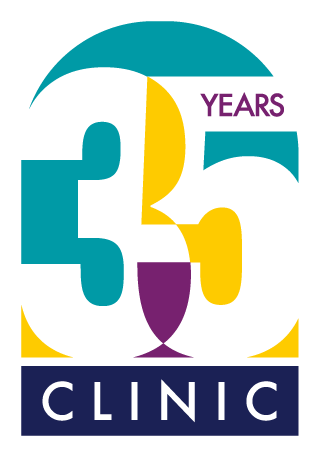Immigration Legal Services Support Program and Career Pathways

Also new in 2023, CLINIC launched in February to build deeper relationships with affiliate and partner organizations. The Field Engagement team spearheaded two new programs in California last year, supported by $30 million of state funding. The goal is to increase the number of immigration legal advocates in the state, especially Department of Justice accredited representatives.
Accredited representatives are unique to immigration law and help address the lack of attorneys working on immigration cases, because they can represent people in immigration cases without being an attorney. “Embracing accredited reps is part of the solution to getting more services to people in low-income communities,” says Luis Guerra, director of field engagement. “We recognize there's just not enough attorneys. The alternative is people go unrepresented or go to unscrupulous actors.”
To help address this, CLINIC launched the Immigration Legal Services Support Program, which provided $8 million in grants to 83 Affiliates.
“[The grants] are for new staff that will be put on the pathway to accreditation, or new attorneys that are building the capacity of an organization,” Guerra says. “We provide training, support, mentorship, and team building so that our Affiliates have what they need to be successful, setting up their foundation for the long haul.”
Accredited representatives must work with immigration organizations credentialed by the Department of Justice, and nearly 40 percent of all accredited reps in the country work at CLINIC affiliates. But it’s not a well-known option for people wanting to get involved in the immigration rights movement, Guerra says.
That’s where the second program, the Career Pathways Immigration Services Pilot Program, comes in. CLINIC has partnered with the Community Learning Partnership California Youth Leadership Corps to connect community college students with opportunities at immigration organizations.
“It’s creating meaningful opportunities for them to understand more about that work,” Guerra says. “And to introduce them to the possibility of becoming accredited reps. It's like, hey, you probably didn't even know this was an option. You maybe want to pursue law school but have all sorts of obstacles to [attend]. Well, guess what? You have another option for working in immigration.”
Last year 40 California community college students participated in the program, which included six months of intensive immigration law training, hands-on experience with local partner organizations, and completion of a certificate course that is one of the requirements for eventually becoming an accredited rep.
"Lots of clients felt comfortable simply because we spoke the same language, and I really enjoyed giving that sense of comfort to them during their hard time."
"At my field placement, I worked on case file organization, client interviews, and community outreach programs. I believe my work helped streamline the case handling process, improving efficiency," one student shared in their post-program survey. "This fellowship has opened my eyes to things that happen in the world and what we as future lawyers and paralegals can do to help. My office was based on domestic violence and helping them apply for visas, so being able to be there for a client when they have to retell us their story and help them find other resources, and the way we speak to them, really makes a change. Lots of clients felt comfortable simply because we spoke the same language, and I really enjoyed giving that sense of comfort to them during their hard time."
These firsthand experiences make each of these students an ideal candidate for any California organization doing immigration work. So far, three have been hired for full-time jobs at affiliates.
“Historically, accredited reps within our agencies come from local communities,” says Guerra, who believes investing in local talent is key to the success of CLINIC’s partner agencies and their accredited reps.
“We’re trying to prove concept here, and hopefully 10 years from now, my dream is that we institute this opportunity in every single community college in California and then replicate it in other states,” he says.
